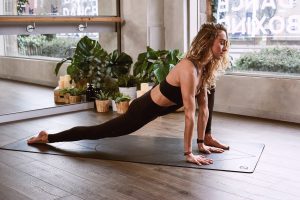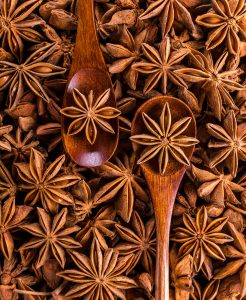Learning how to use herbs for your health and well-being can be a very rewarding pursuit. Herbs are very powerful medicinal plants that can help you live a much healthier lifestyle. Though they have been used for thousands of years to treat many illnesses and ailments, they have not lost any of their potency in the modern world.
Tips and precautions for using herbal remedies
It can be confusing to decide whether or not to try herbal remedies. On the one hand, they’re natural and often have fewer side effects than synthetic drugs. On the other hand, herbal medicine is unregulated and some supplements may have hidden side effects or ingredients.
Ayurvedic herbs help ease illness-related symptoms, but there are factors to consider before using them. These include:
- Dosage – How much of the herb to use and how often.
- Pregnancy – Some herbs are not safe to use during pregnancy.
- Drug interactions – Certain herbs can interact with prescription drugs, vitamins, or other herbal remedies.
- Allergies – Some herbs contain substances that could trigger allergic reactions in some people.
- Children – Many herbs are suitable for children over a certain age but not younger children. Some herbs should never be given to children.
How to use herbs for good health and well-being.
Treating yourself with herbs is a great alternative to taking over-the-counter drugs or prescription medications. Herbs are used for medicinal purposes and to enhance the appearance of your skin. Many women use herbs to help them with their facial skincare routine.
The natural ingredients in these herbs can help rebuild collagen and give you a youthful appearance. Herbs are also used for aromatherapy. The smell of some herbs is very pleasing and calming to the senses, which is why they are so commonly used.
For the kitchen chef, having a handful of fresh herbs is ideal for those days when they want to cook up a storm. Roast lamb with rosemary, anyone? Here are five ways of using herbs daily to reap their health benefits.
1. Herbal teas
Herbal teas are a popular drink around parts of the world. They are made from leaves, flowers, roots, or fruits of herbs. These teas have become popular among young populations in the world.
Even though people are unaware of how to use herbs for good health, they are very beneficial to your body. The most commonly used herbs are:
- Mint tea is a refreshing, soothing beverage that helps increase alertness and dispel negative emotions. It is used to treat digestive system disorders such as nausea, flatulence, and heartburn. To make tea, pour two teaspoons of fresh or dried leaves into a cup, cover with boiling water and drink once it has cooled down.
- Hibiscus has many health benefits. It’s rich in vitamins A and C, calcium, potassium, and magnesium. Some people use hibiscus as a mild laxative to relieve constipation. It comes in both teabag and crushed form. To make tea from the crushed flowers, pour a teaspoon or two of hibiscus into a cup, and cover with boiling water. Once it has cooled down, strain and enjoy.
- Lavender is one of the most popular herbs among herbalists for its many uses in treating different health conditions including anxiety, insomnia, depression, and stress-related issues such as headaches. The flowers are usually used to make a calming tea. Pour two teaspoons of dried or fresh lavender flowers into a cup add boiling water, and drink once it’s cooled down.
- Ginger tea is often used as an after-meal drink because it aids digestion by stimulating the production of bile in the liver. The tea can be made using powdered or fresh ginger. In a cup, pour a teaspoon or two of ginger, pour boiling water, and allow to steep for 5 minutes before drinking.
- Chamomile is used as a natural remedy for insomnia and headaches and should be taken with honey before bedtime to help you sleep better. Chamomile comes in teabag which you would use like regular tea.
2. Herbal Tinctures
Herbal tinctures are made by extracting the active ingredients from herbs into a solvent such as alcohol. This process draws out the herbs’ beneficial components, leaving behind the fibers and other non-active materials. Here are some benefits of herbal tinctures:
- They’re convenient. No need to measure or mix herbs with water. Just add a few drops of the herbal tincture to water, juice, or any other liquid.
- They’re concentrated. A single drop or two is what you need to reap the health benefits.
They’re shelf-stable. Herbal tinctures can be stored at room temperature in a cool, dark place for years without losing potency. - They’re economical. A few ounces of an herb can make many bottles of the tincture.
- They’re discrete. Herbal tinctures contain no obvious sign that they’re medicine. This makes them easy to travel with and ideal for children.
Herbal Tincture Dosages: Tinctures are very concentrated liquids. Some people use a dropper-full for every dose, while others use just a few drops. In general, start with small doses, and depending on how your body responds, you can increase the dosage as required.
3. Herbal Oils and Gels
Herbal oils and gels are used for a variety of purposes. They are usually used in massages, added to bathwater, or used as oil for aromatherapy. Common uses for oils and gels include:
- Treating Aches and Pains: Herbal oils and gels are great for treating aches and pains, including those caused by sports injuries or arthritis. When applied topically, the herbs penetrate through the skin and into the bloodstream much more quickly than they do when ingested.This not only alleviates pain but also offers an anti-inflammatory effect that will help to reduce inflammation throughout the body. This allows you to recover from injuries more quickly than you would otherwise.
- Fighting Infection: Herbs are used as part of traditional medicine practices around the world because they have potent antibacterial properties. You can use them on their own or combined with other ingredients for greater effectiveness.Many of them work by fighting off bacteria instead of targeting individual strains, so they are effective against many different types of bacteria without being susceptible to resistance
4. Herbal Salves and Balms
Herbal salves and balms are the perfect way to administer herbal medicine in a convenient and easy-to-use form. Herbal salves are great for dry, irritated, and sensitive skin as they will not harm or irritate your skin and do not carry any toxic properties. You can also add essential oils to your balms and salves so they are tailor-made for the infections you want to treat.
Great for applying directly to the skin, herbal salves can be used for a variety of ailments including psoriasis, cuts, wounds, burns, and acne.
5. Herbal Baths
Making an herbal bath is a great way to relax and enjoy the soothing powers of herbs. It is a great way of relaxing after a stressful day, helps with aches and pains, or eases symptoms of certain illnesses.
Most herbal baths contain one kind of herb or essential oil, such as lavender or eucalyptus, but you can use several in combination for an extra relaxing effect. Here are some ideas:
- Lavender is known for its calming effects on both the body and mind. It can help with insomnia, anxiety, and headaches, among other problems. Add lavender flowers or extracts to your bathwater.
- Chamomile is well known for its ability to relieve anxiety and stress. Add some dried chamomile flowers and Epsom salts to your bath— a mineral compound that may help relieve muscle aches and tension.
- Make your own herbal bath salts. Mix up your special combination of herbs and salts with an easy recipe that includes lavender flowers, sea salt, and baking soda.Lavender is a must-have for aromatic baths; it’s great for reducing anxiety and calming the nerves. Sea salt is full of minerals that are great for soothing the skin, while baking soda helps draw out toxins from the body.
When used correctly, herbs can improve your overall health and well-being. However, they should be treated with caution if you’re taking any medications or have an underlying illness, as they may interfere with some treatments. Don’t self-diagnose—talk to your doctor before trying an herbal supplement of any kind.








